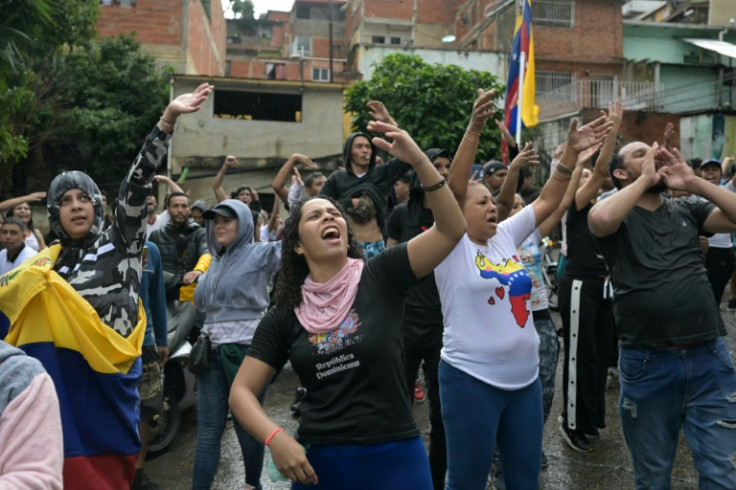
At least four people have died and dozens have been arrested during the protests against the government in Venezuelafollowing its decision to claim an electoral victory without showing supporting documentation.
Local organizations reported that the first fatality was reported in the state of Aragua after a 30-year-old man student was killed in the context of a protest. Outlet Efecto Cocuyo detailed that the man, Rancés Yzarra, was shot and pronounced dead on arrival at the hospital.
Opposition spokesman Perkins Rocha said that at least three people died in the state during the protests, which have been escalating over the past hours. The two other victims in the state have not been identified. A fourth one in the state of Zulia is reportedly a 15-year-old teenager. Authorities are working to determine if three other deaths took place in the context of protests.
Many observers recalled that Maduro had warned of a "bloodbath" should he not win the elections. "If you don't want Venezuela to fall into a bloodbath, into a fratricidal civil war because of fascists, we need to guarantee the largest electoral victory in the history of our people," Maduro said during a speech in mid-July.
Maduro said on Monday night that security forces had acted upon "terrorist" and "criminal" actions, saying the opposition was responsible for them. He added that 80% of those arrested have criminal records and some of them entered the country from the U.S. He did not provide details to back his claim.
Tensions are running high in Venezuela since Sunday night, as the Nicolás Maduro government claimed victory in the elections but has not shown the documents to back it. Back then, the head of the country's electoral council, Elvis Amoroso, said Maduro got 51.2% of the vote, beating opposition candidate Edmundo González Urrutia, who got 44.2% with 80% of the votes tallied.
The opposition, in contrast, on Monday said they possess 73.20% of the station-level results and that, according to those documents, they won by a large margin. "We now have a way to prove the truth about what happened in the elections," said Machado. "All the records, as we receive them, are verified, digitized, and placed on a robust web portal."
"Even if the CNE gives Maduro 100% of the votes, it wouldn't be enough against what we already have," Machado added. "The difference was so large, in every state, every stratum, every sector."
The government, on its end, says the electoral council's website has been attacked and said the opposition is to blame. Government Attorney General Tarek William Saab said the alleged attack was perpetrated from "North Macedonia" and that such crimes can have sentences ranging from three to six years in prison. He particularly named María Corina Machado and opposition leader Leopoldo López as leaders of the attack.
Protests continue spreading in the meantime, with a common thread that began to appear across videos surfacing on social media: protesters tearing down official propaganda from Maduro's recent electoral campaign. From street posters to billboards, the face of the incumbent president being torn down was a symbolic gesture for many.
Another common occurrence among protesters became the toppling of statues of late president Hugo Chávez. Loud cheers accompanied the videos after the statues fell to the ground in different squares across Venezuela. The scenes reminded many X users of the toppling of Saddam Hussein statues in 2003 which became a symbol of the western victory over Iraq.
© 2025 Latin Times. All rights reserved. Do not reproduce without permission.





